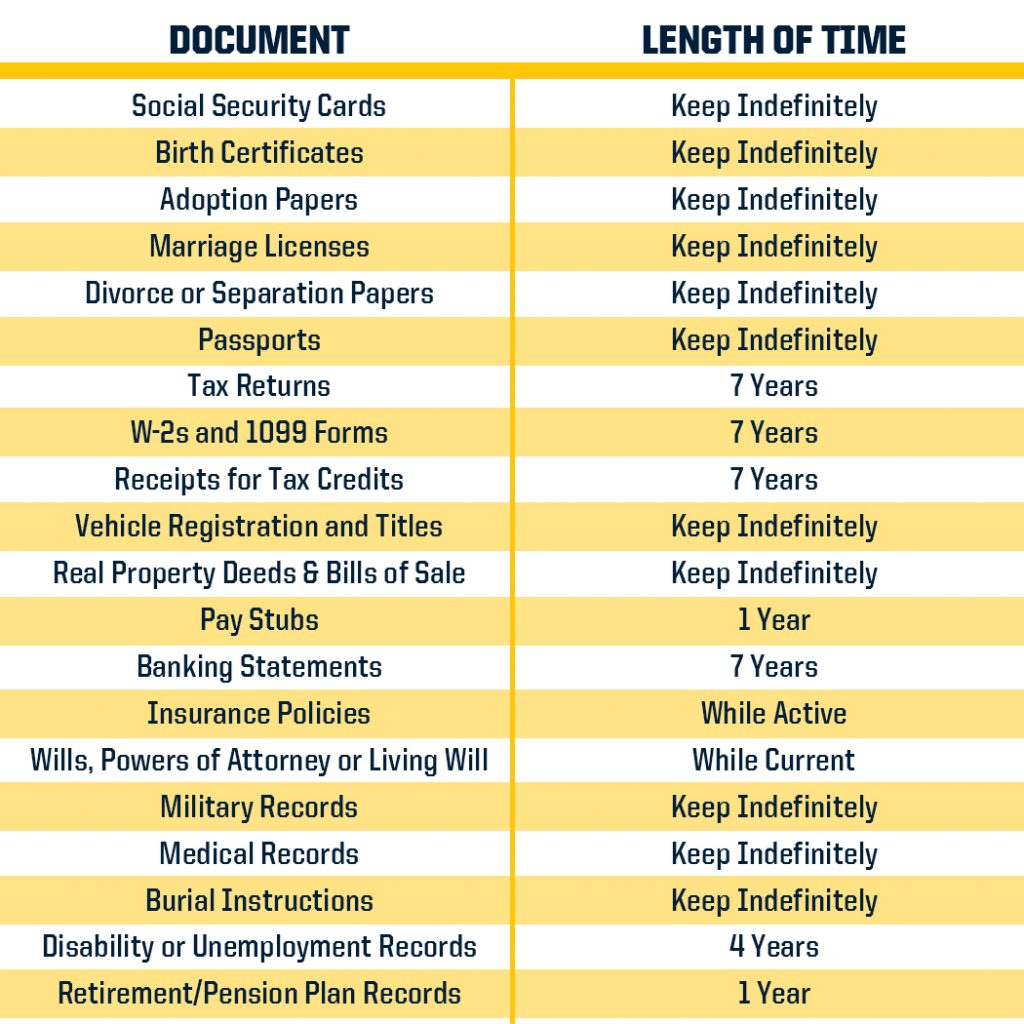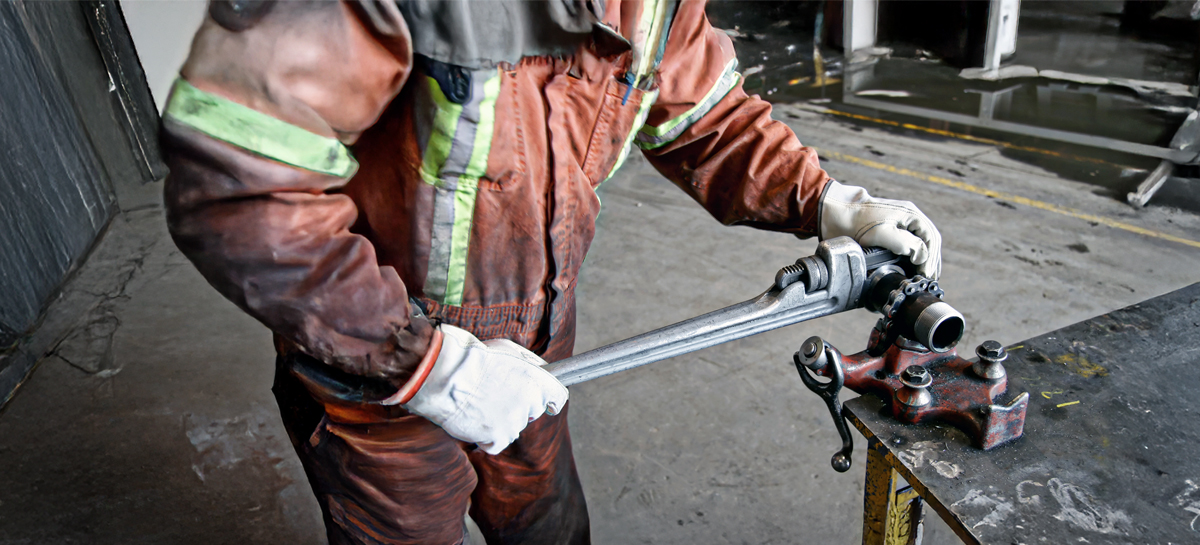Collect and Protect Important Documents
Keeping sensitive documents safe can give you peace of mind in case of unexpected events, and ensure you have documents ready when needed. Below, our friends at BALANCE have put together which documents you should protect and options for doing so.
Which Documents to Collect
If you are like most adults, you have probably kept thousands of pages of documents, varying from trivial, to sentimental, to financially important. Everyone has different ways of organizing and storing these documents, but most likely your documents could use some cleaning up and better protection than you may have been doing. Do you know what you should be keeping and for how long? Below is a list of the most important documents to store and how long you should keep them. Keep in mind that this list may not include everything. You could have some other documents that you’d like to include as well.

What if you haven’t been holding on to these documents? It’s never too late to start! Now that you know what to collect, you may have some work to do in order to gather them, but you should still be able to get your hands on most of these documents. Start by contacting your financial institutions, government records offices, or professional offices that assisted you in preparing the documents.
How to Protect Them
There are various ways to protect these documents, and you may choose to use a combination depending on the type of document. Before storing the documents, they should be organized. The documents should be grouped by category and labeled for easy access. If that seems like a daunting task, there are probably a lot of documents you no longer need to keep. Use the list above or find one online to use as a guide to purge any documents that are no longer relevant.
Most documents can be kept in a filing cabinet or filing boxes, such as tax records, medical records, or other records that are important but do not necessarily need to be kept somewhere that is fire or theft-proof. On the other hand, personal identification documents, deeds, insurance policies, and vehicle titles should be stored in more secure ways, such as with a fire-proof safe or safety deposit box at your financial institution.
Lastly, make sure that the proper people have access to your documents in the event that you become incapacitated. This means informing those individuals where documents can be found and how to get access to them. You may need to provide power of attorney to those individuals or add them as authorized individuals to your accounts. The important thing is to make sure your personal documents can be accessed easily when they are needed.
Challenge Yourself
Sorting through all these documents may seem like a heavy task to take on. Challenge yourself to pull out those old boxes and gather all your important personal documents into one place, get them organized, and stored safely. Use our list as a checklist to make sure you don’t miss anything. Be sure to include any documents particular to you that are important, but that may not have made the list. Next, organize the documents into an easily accessible system and decide where you are going to keep them. Finally, make sure your family or other beneficiaries know where they can find and access the documents in case you are unavailable when they are needed.
Don’t forget to shred or otherwise safely dispose of any personal documents you purge!
« Return to "Blog"







